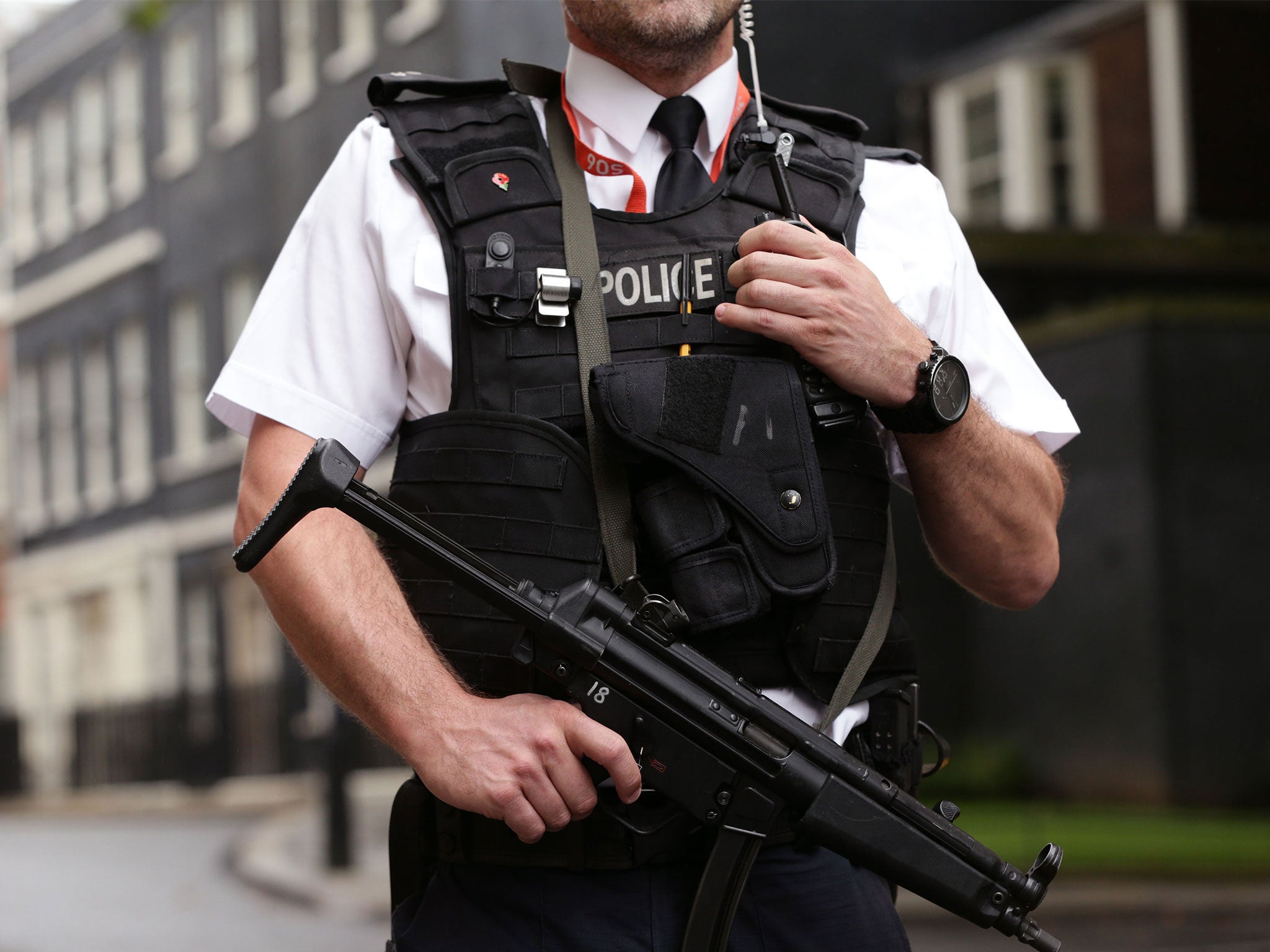Two men charged with terror offences after alleged attack plot thwarted
Nine terror plots have been foiled since the Westminster attack in March

Two men have been charged with terror offences after an alleged attack plot was thwarted.
Naa’imur Zakariyah Rahman was arrested in London and Mohammed Aqib Imran was detained in Birmingham in coordinated raids by armed police last week.
Rahman, 20, has been charged with preparing to commit acts of terrorism and assisting Imran to the same ends.
Imran, 21, has also been charged with preparing to commit acts of terrorism. Both men have been remanded in custody to appear at Westminster Magistrates’ Court on Wednesday.
Nine Islamist terror plots have been thwarted in the UK since the Westminster attack in March and officials have warned that the threat shows no sign of diminishing.
Andrew Parker, the director general of MI5, told the cabinet social media was being used to encourage attacks even after the defeat of Isis’ territorial “caliphate” in Syria and Iraq.
Theresa May told her ministers that the threat from terror was at an “unprecedented” level but the Prime Minister's official spokesman could not discuss details of the foiled plots because of ongoing court proceedings.
“Ministers heard that, while Daesh had suffered major defeats in Iraq and Syria, that doesn't mean that the threat is over,” he said.
“Rather it is spreading to new areas, including trying to encourage attacks on the UK and elsewhere via propaganda on social media.”
A review of security services’ actions in the run-up to the terror attacks that killed 36 victims this year found that opportunities had been missed to investigate and potentially prevent the Manchester bombing.
Reacting to the report, Amber Rudd told the House of Commons there is “simply more terrorist activity” in Britain as Isis turns increasing attention to global attacks.
“Plots are developing more quickly from radicalisation to attack, and threats are becoming harder to detect,” she added.
“We must learn all that we can from these attacks, and make sure our overall counter-terrorism response is equal to the shift we have seen in the threat.”